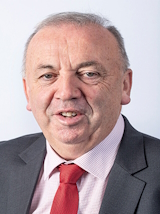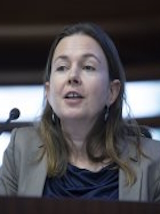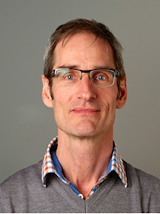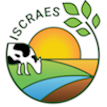Prof. Pat Dillon
Teagasc, Ireland

Having served as the Head of the Animal Production Research Centre in Moorepark and the Teagasc Animal & Grassland Research and Innovation program, Professor Dillon is widely recognized as a prominent scientist in sustainable, pasture-based livestock production. His extensive experience in technology development and industry engagement ensures that Teagasc remains a scientific leader in agriculture, food science, and related areas.
For more information: Click here
Talk: TBA.
Dr. Ada Ignaciuk
OECD, France
 Dr. Ada Ignaciuk, Senior Economist/Policy Analyst (Climate Change and Agriculture) at the OECD, previously held a similar role at the Food and Agriculture Organization (FAO). At the FAO, she led the CSA-EPIC team and focused on the economics of climate change and sustainable food production.
Dr. Ada Ignaciuk, Senior Economist/Policy Analyst (Climate Change and Agriculture) at the OECD, previously held a similar role at the Food and Agriculture Organization (FAO). At the FAO, she led the CSA-EPIC team and focused on the economics of climate change and sustainable food production.
Dr. Ignaciuk earned her PhD from Wageningen University, analyzing the bioenergy market. With experience at the Kiel Institute for the World Economy and the Netherlands Environmental Assessment Agency, she specializes in quantitative assessment of environmental policies.
At the OECD, she provided scientific, technical, and policy guidance on climate-friendly agricultural policies.
For further information: Click here
Talk: TBA
PD Dr. Jens Leifeld
Agrospcope, Switzerland
 Dr. Jens Leifeld heads the Climate and Agriculture Group at Agroscope, Switzerland, having previously led the CO2 Sources and Sinks team. A Privatdozent at Universität Basel since 2008, he earned his Ph.D. in Soil Science from Ruhr-Universität Bochum, Germany.
Dr. Jens Leifeld heads the Climate and Agriculture Group at Agroscope, Switzerland, having previously led the CO2 Sources and Sinks team. A Privatdozent at Universität Basel since 2008, he earned his Ph.D. in Soil Science from Ruhr-Universität Bochum, Germany.
Dr. Leifeld’s research focuses on quantifying agricultural greenhouse gas emissions, assessing climate change impacts, and exploring adaptation strategies. His group employs advanced methods and modelling to study agricultural soil’s role as a carbon source or sink, emphasising sustainable management in organic soils. Additionally, he serves on scientific advisory boards and committees related to peatland monitoring and climate protection programmes at the international level.
For further information: Click here
